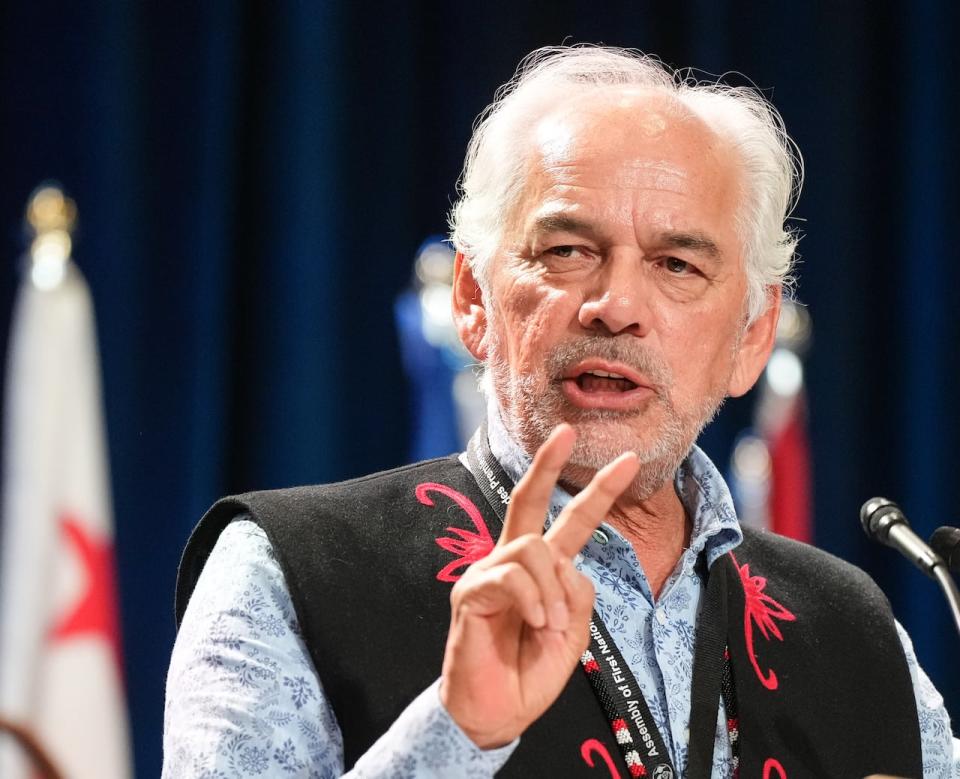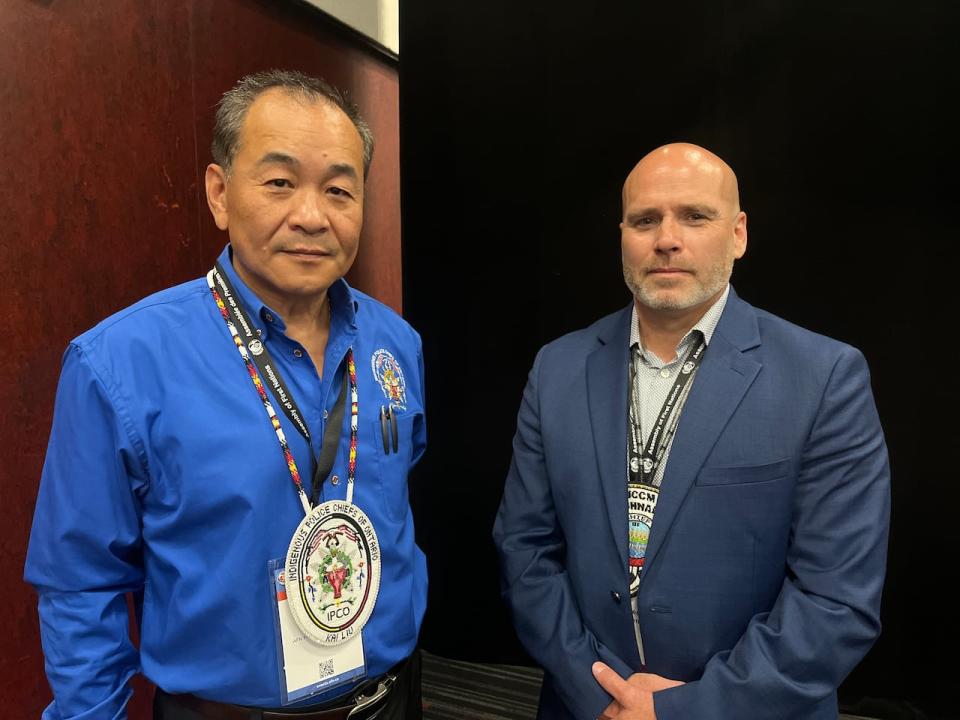AFN calls for federal government to recognize First Nations jurisdiction over policing

The Assembly of First Nations (AFN) is reaffirming its calls for the federal government to recognize First Nations jurisdiction over policing.
Chiefs from across Canada are meeting in Montreal this week for the AFN's annual general assembly.
On Wednesday, the chiefs in attendance adopted a resolution calling for Public Safety Canada to introduce federal legislation that recognizes "First Nations inherent, treaty and constitutional rights" over policing. The resolution was adopted with one opposition and one abstention.
Ghislain Picard, regional chief for Quebec-Labrador who holds the AFN portfolio on justice and policing, said the resolution reaffirms previous positions by the chiefs.
"The resolution will serve as a reminder of the positions that we have to acknowledge, respect and deliver in the face of what I would call opposition from all levels of government," he told the assembly.

Quebec and Labrador Regional Chief Ghislain Picard speaks at the annual general assembly in Montreal, Tuesday. (Christinne Muschi/The Canadian Press)
In 2020, the federal government announced it would create new First Nations police services legislation. Progress on co-developing the legislation has been slow.
Records obtained by The Canadian Press last year under the Access to Information Act appeared to show that one of the sticking points for AFN and Ottawa is whether to recognize policing as an area of First Nations jurisdiction.
Dominic LeBlanc, minister of public safety, addressed the assembly on Tuesday. In response to questions, he said his mandate is to introduce the legislation "quickly" but rights-based discussions are a "more complicated conversation."
"If we want to tie those two together, in my judgment, we're not going to get in the next few months legislation before the House of Commons and miss an opportunity to take a big step forward together," said LeBlanc.
Representatives from the Indigenous Police Chiefs of Ontario told CBC News that LeBlanc's remarks were frustrating and disappointing.

Kai Liu (left) is executive director of the Indigenous Police Chiefs of Ontario (IPCO). James Killeen (right) is vice-president of chiefs of police at IPCO. (Ka’nhehsí:io Deer/CBC)
"The inherent jurisdiction of First Nations to govern their own resources for public safety — that is non-negotiable," said Kai Liu, executive director of IPCO, which represents nine self-administered First Nations police services in Ontario that serve 86 communities.
"Without that, [it's] left to Canada or the province to dictate to the First Nations how they're going to be policing."
Liu and James Killeen, vice-president of chiefs of police at IPCO, both addressed the assembly Tuesday. Last year, the association launched a human rights complaint against Canada.
"We're seeking justice for decades of chronic underfunding of Indigenous public safety," said Killeen.
"No other communities across Canada that are policed by provincial or municipal or federal police ever have the threat of having their funding cut off and their police service disbanded. But we did face that, and that was a result of us filing that human rights complaint."
Liu echoed similar sentiments.
"In all my years of policing, I have never seen anything like the discriminatory underfunding of Indigenous public safety," said Liu.
"These services are asked to do more, with less."
Unlike non-Indigenous communities across Canada where policing operates as an essential service, under the First Nations and Inuit Policing Program (FNIPP), funding agreements are negotiated between the communities, Public Safety Canada, and the province or territory.
There are 36 self-administered First Nations and Inuit police forces under FNIPP. Julie McGregor, AFN's senior legal counsel, told the assembly that the majority of the self-administered police forces are under similar litigation as IPCO.
The assembly continues on July 11.


